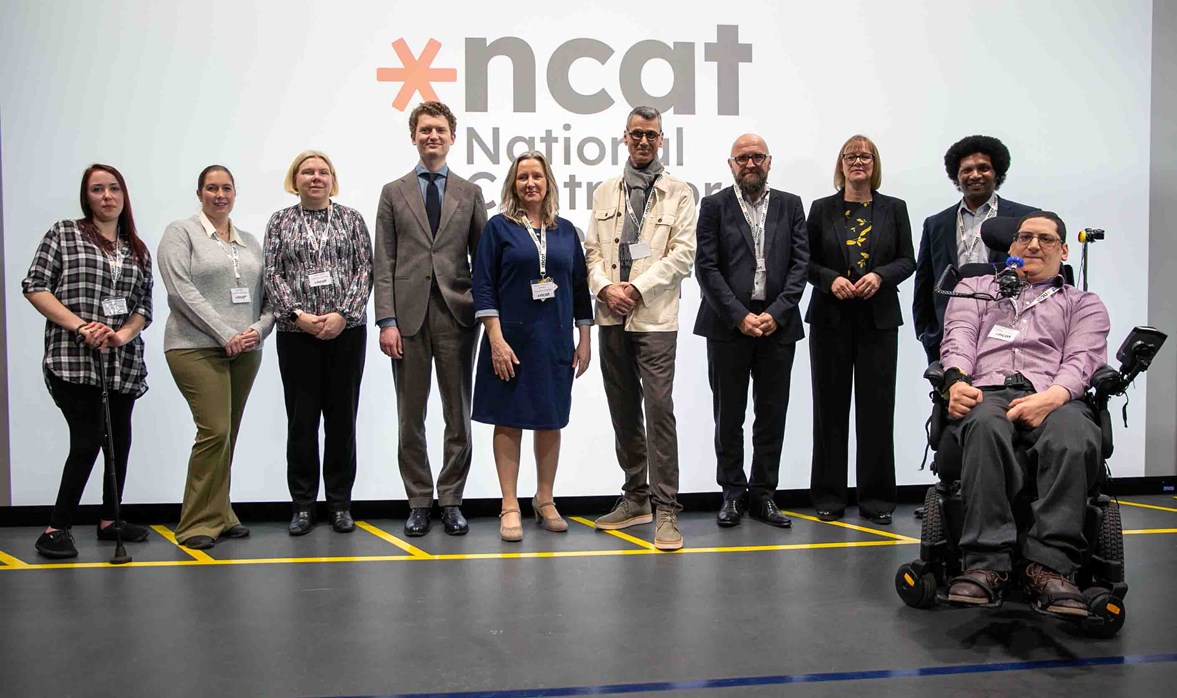Today marks the launch of the National Centre for Accessible Transport (NCAT) at Coventry University, a UK first in inclusive transport, with the aim to make future and existing modes of transport accessible to all.
Previously referred to as the Evidence Centre for Inclusive Transport, here at Motability we are proud to have provided £20 million in funding for the Centre.
Led by Professor Paul Herriotts, and based at the university’s National Transport Design Centre (NTDC), NCAT will work in collaboration with charities RiDC and Designability and organisations Connected Places Catapult, Policy Connect, WSP.
Research and agenda will be led by disabled people
The Centre’s research and agenda will be led by disabled people, building upon the user-centred approach successfully developed at NTDC.
The Centre aims to make transport accessible for all through innovation and by engaging with disabled people:
- To better understand their experiences and co-design solutions
- Amplifying the voices of disabled people in all decision making
- Collaborating widely with all transport stakeholders
- Demonstrating good practice and impact to influence policy
“Vital that we listen to what disabled people have to say”
Professor Paul Herriotts said: “It is vital that we listen to what disabled people have to say about their experiences of public and private transport and use this information to change the future of travel.
“NCAT will use research and insights to influence key decision makers in the transport sector and local and national government to ensure that the way disabled people travel and get from one place to another is made much easier.”
“When there are barriers to using transport, it really can impact your self-esteem”
Stephanie McPherson-Brown, whose PhD with Coventry University is exploring disabled people’s experiences of public transport, said: “For me it’s about how transport impacts on quality of life.
“Everybody uses transport for different things, it’s not just getting to work or the hospital, disabled people need public transport to be able to socialise, see friends and to be spontaneous just like everyone else.
“When there are barriers to using transport, it really can impact your self-esteem.
“There is a lot more planning that disabled people have to do to travel, which can be stressful and sometimes you really have to weigh up whether the journey is worth it.
“I feel so privileged to be helping this project, a centre like this is really needed.”
“More needs to be done to make transport inclusive.”
Rachael Badger, Motability’s Director of Performance and Engagement, said: “We are delighted to see the launch of the National Centre for Accessible Transport, at Coventry University today.
“Funded by Motability for the next seven years, the Centre is led by the experiences of disabled people and brings together a wealth of expertise in transport design to broaden the evidence base on inclusive transport, bringing forward new policy and design solutions.
“We know that being unable to make the journeys they want or need to, has a huge impact on disabled people’s daily lives and more needs to be done to help make transport inclusive.”
Learn more about the National Centre for Accessible Transport
An event to officially launch the centre is taking place at Coventry University today (February 15) and invited guests will hear directly from disabled people about their current travel and transport experiences.

